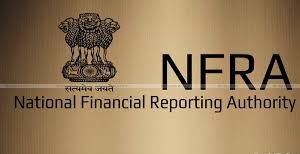S.S. Sandhawalia, J.@mdashThis civil revision petition is directed against the order of the learned Subordinate Judge 1st Class, Amritsar, dated the 8th of October, 1975, whereby he rejected an application for the amendment of the plaint filed by the petitioner.
2. The suit which gives rise to this proceeding was instituted on the 2nd of September, 1974, against the defendants under Order 37 of the Code of Civil Procedure, 1908, enabling a summary procedure on negotiable instruments. The defendants appeared and made an application for permission to appear and defend as required under Rule 3 of the Order, aforesaid. However, before that application could even be disposed of, the plaintiff moved the application, seeking permission to delete the relevant averments for filing the suit under Order 37, Rule 2, Civil Procedure Code, and in fact to resort to the ordinary procedure prescribed by law. The learned Subordinate Judge, however, rejected the application, aforesaid and the present revision against it was admitted by this Court on the 9th January, 1976 and further proceedings in the suit were stayed. In view of the dates aforesaid, the learned counsel for the parties are agreed that the matter is governed by the provisions of the unamended Code.
3. Now a reference to the provisions of Order 37 makes it plain that it provides for a special and a summary procedure with regard to suits based on negotiable instruments. The provisions thereof are of no general application but apply to certain limited jurisdictions. What, however, deserves to be highlighted is the fact that Order 37 does not in any mandatory terms substitute or supplant the ordinary procedure for the trial of a suit on negotiable instruments and is merely an enabling provision which gives the right to plaintiff to resort to the this summary procedure, if so advised. This is evident from sub-rule (1) of Rule 2, which is in the following terms:--
2. (1) All suits upon bills of exchange, hundis or promissory notes may, in case the plaintiff desires to proceed here under, be instituted by presenting a plaint in the form prescribed, but the summons shall be in Form No. 4 in Appendix B or in such other form as may be from time to time prescribed.
4. It appears plain to on the language of the aforesaid provision that an option is given to the plaintiff to resort to this procedure if ha desires. I do not think that a plaintiff would irrevocably lose his right to have the suit tried in the ordinary procedure the moment he once elects an to resort to rule 2, aforesaid. What is significant in the present case is the fact that the present application was moved even before the defendant''s application for leave to defend the suit was decided. Therefore, not the least prejudice could possibly be caused to them. Indeed, under this provision a defendant at the very initial stage can hardly contend that the plaintiff must resort to the summary procedure and not to the ordinary procedure for the trial of the suit. It appears to me that this aspect of the matter has not been well appreciated by the learned trial Court whilst denying to the petitioner his fair prayer that at the very initial stages of the suit he may elect to resort to his ordinary remedy rather than the special and the summary one.
5. Learned counsel for the petitioner has rightly placed reliance on
6. I would accordingly allow this revision and setting aside the order under revision allow the application for amendment on the payment of Rs. 100/- as costs to the defendants. The case shall now go back to the trial Court for expeditious disposal. Parties to appear before it on the 13th of January, 1978.

